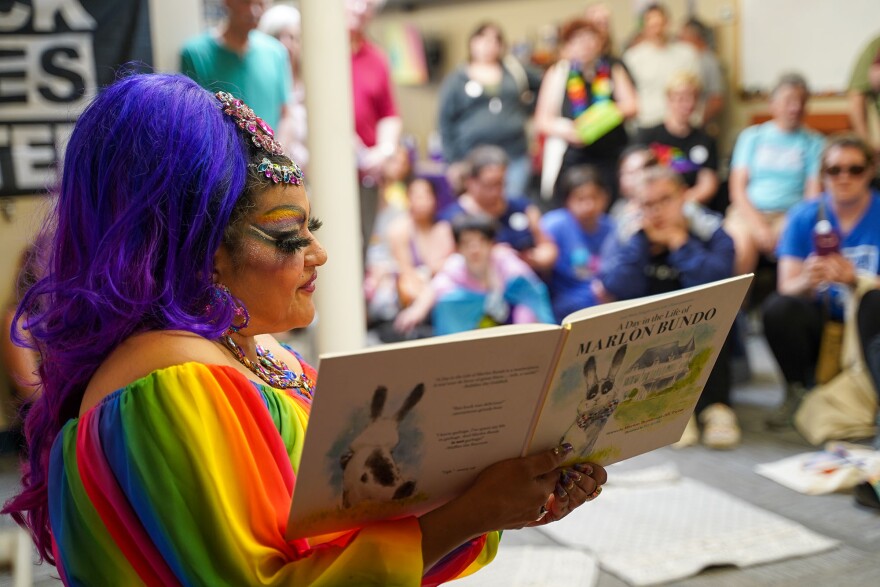A new bill in the Ohio House would prevent some drag performances in front of children. It's similar to bills that have either passed or are moving through legislatures in more than a dozen states.
House Bill 245 seeks to ban “adult cabaret performances” by entertainers who exhibit a gender identity that is different than the one they were prescribed at birth that could be harmful to children under 18, said Rep. Josh Williams (R-Sylvania), who is one of the bill's sponsors along with Rep. Angie King (R-Celina).
Most of the Republicans in the GOP-dominated House have signed on as co-sponsors of the bill, which was just introduced and hasn't been assigned to a committee yet.
The legislation doesn’t target all drag performances in front of children, Williams said, only those considered obscene – involving things like nudity or entertainment that “appeals to a prurient interest.”
“We have seen video here in Ohio where there is conduct that rises to the level of obscenity. We’ve also seen videos of conduct that is clearly protected First Amendment activity, and we are not targeting that," Williams said.
It's likely to face strong opposition from Ohio's LGBTQ+ community as it moves through the legislative process. It is the latest bill from this legislature involving LGBTQ+ issues.
Last month, the House passed a bill that bars trans athletes from participating in girls' sports, and another that bans trans children under the age of 18 from receiving certain medical treatments. Another bill that changes how teachers in schools can discuss LGBTQ+ issues with students also passed earlier this year.
Drag performances have also been at the center of debates in libraries and communities throughout the state. And several have been the targets of protests by activists, sometimes wearing uniforms or carrying banners tied to white supremacist or neo-Nazi movements.
Earlier this year, a federal court ruled a similar law affecting drag performances in Tennessee was unconstitutional, saying it was vague, overly broad and was not uniformly enforced.







